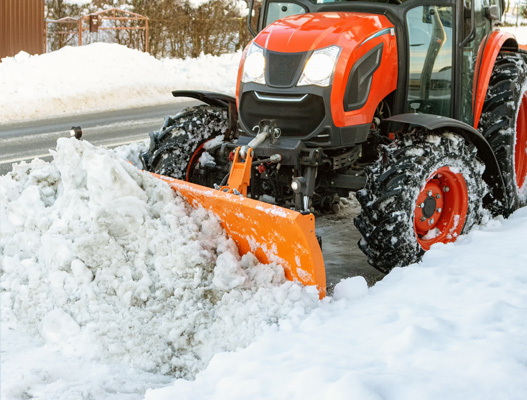 It’s that time of year, and if you live in Illinois, you’re accustomed to snow during winter. Soon we’ll encounter the sights of snowplows removing snow and ice on streets, parking lots and sidewalks. During the winter, you likely fall into one of two categories: property owner/manager who hires someone to remove snow, or a company hired to remove snow for others. If either of these applies to you, you should be aware of Illinois law that affects risk transfer and liability.
It’s that time of year, and if you live in Illinois, you’re accustomed to snow during winter. Soon we’ll encounter the sights of snowplows removing snow and ice on streets, parking lots and sidewalks. During the winter, you likely fall into one of two categories: property owner/manager who hires someone to remove snow, or a company hired to remove snow for others. If either of these applies to you, you should be aware of Illinois law that affects risk transfer and liability.
The property owner/manager and snow removal company customarily enter into a written contract outlining the duties and responsibilities of each party. A major problem plaguing the snow and ice management industry centered on contract language, specifically the contractual indemnification clause.
A typical contractual indemnification clause might read as follows: “To the fullest extent permitted by law, you shall, at your own cost and expense, defend and indemnify (property owner) from any and all allegations directed at the indemnified party. To the fullest extent permitted by law, you shall indemnify and hold harmless the indemnified parties from any and all liabilities, obligations, claims, demands, settlements, and penalties, for any incidents arising out of based upon, or in connection with your performance.”
Translation: If anything goes wrong, the snow removal contractor must assume liability, even if the property owner/manager is in any way at fault for a snow and ice incident. Property owners/managers’ contracts historically provided for them to be fully reimbursed for all costs associated with a claim (including attorneys’ fees and indemnity) by the snow removal company, regardless of fault.
For several years, the Accredited Snow Contractors Association lobbied for legislation to void these types of indemnification clauses under Illinois law. On August 25, 2016, Illinois became the first state to adopt into law the association’s proposed legislation, referred to as the Snow Removal Service Liability Limitations Act. The law, in part, provides that any provision, clause, covenant or agreement entered into on and after August 25, 2016, that is part of, or in connection with, a snow removal and ice control services contract is against public policy and void if it requires one party to indemnify or hold harmless the other party from any tort liability resulting from its own acts or omissions.
This legislation has a positive impact on snow removal contractors who were accustomed to paying for losses even if they weren’t at fault. This law may come as a surprise to many property owners/managers who transferred all losses to the contractor via the contractual indemnification clause. The law places the liability with the appropriate party. The bottom line is property owners/managers can no longer pass their liability on to the contractor or vice versa through contractual indemnity.
There are exceptions to the new law. The law doesn’t apply to:
- Contracts for snow removal or ice control on public roads with public bodies
- Contracts for snow removal or ice control with a public utility
- An insurance policy, surety bond or workers’ compensation
This means if one of the parties to the contract is a public body or public utility, that public body or utility can legally transfer liability to the other party regardless of fault. The law does not apply to insurance, and therefore your insurance company could agree to pay more than the snow removal contractor’s share of fault for a loss.
Moving forward, contractors and property owners/managers should be aware of the following:
- All contracts entered on and after August 25, 2016, which contain an indemnification clause indemnifying the other party for their fault will be void and unenforceable, and neither party will be allowed to seek indemnity from the other.
- All parties entering into new snow and ice removal contracts should consider revising their contracts to provide indemnity but only for that portion of a loss which arises out of its fault, not the other party. Contractors should consider requiring that the owner indemnify it to the extent a loss was caused by the property owner/manager and vice versa.
- The law doesn’t affect the parties’ rights to request insurance from one another, including additional insured status on a policy.
It’s recommended you review your current contracts with an attorney to ensure your contract contains an enforceable indemnification clause under Illinois law. If your business performs snow removal services outside of Illinois, The Accredited Snow Contractors Association is also lobbying for comparable legislation in all 50 states. Similar legislation was passed in Colorado in 2018. Lawmakers in New Jersey, New York, Pennsylvania, Indiana and Massachusetts are considering adopting this legislation as well.
Contact a Marsh McLennan Agency (MMA) advisor if you have further questions.




